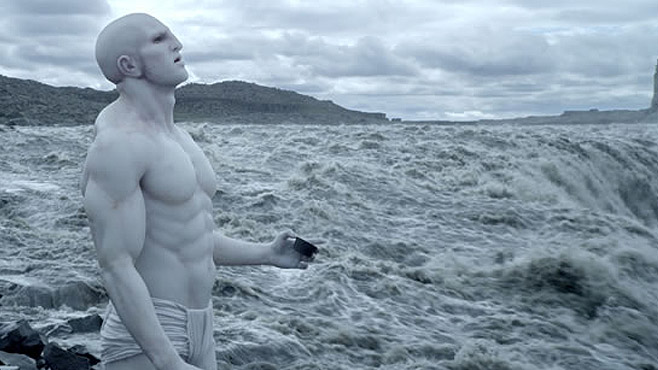Playing God: Could we create life on other planets?
On specially-created 'Genesis' spacecraft

Sign up for breaking news, reviews, opinion, top tech deals, and more.
You are now subscribed
Your newsletter sign-up was successful
We don't know where life on Earth came from. There are plenty of theories, among them the suggestion that it had extraterrestrial origins - that our single-celled evolutionary ancestors may have arrived on a meteorite or other intergalactic object.
Now, astrophysicist Claudius Gros is asking whether we should use our privileged position as the undisputed evolutionary kings of Earth to seed life elsewhere in the Universe, a little like the alien in the opening scene of Ridley Scott's 2012 movie, Prometheus.
Gros has written an essay, published in the journal "Astrophysics and Space Science", which asks whether it's possible to bring life to celestial bodies outside our solar system which are not permanently habitable.
Develop independently
In the past decade or two, we've discovered thousands of exoplanets of varying types. Some are habitable intermittently but not permanently. " Life would indeed be possible on these planets, but it would not have the time to grow and develop independently," says Gros.
He envisages a collection of "Genesis" probes, each containing an automated gene laboratory capable of synthesizing single-celled organisms of the type found on Earth just prior to the Cambrian explosion, when most major forms of life emerged.
Once an exoplanet is reached, the probe could sit in orbit and drop capsules full of microbes down to the surface at regular intervals over the course of a few centuries. From a technical standpoint, the technology to achieve that should be possible within a few decades.
Give something back
Gros says that the mission wouldn't be of much benefit to humankind, though. The timescales involved range between a few tens of millions and a hundred million years. "It would, however, enable us to give something back", he says.
Sign up for breaking news, reviews, opinion, top tech deals, and more.
In an interview with The Atlantic, he expanded on his reasoning. "For me, personally, it is a question of aesthetics," he said. "Life is something beautiful, and giving life the possibility to blossom elsewhere in the universe would be wonderful."
- Duncan Geere is TechRadar's science writer. Every day he finds the most interesting science news and explains why you should care. You can read more of his stories here, and you can find him on Twitter under the handle @duncangeere.
